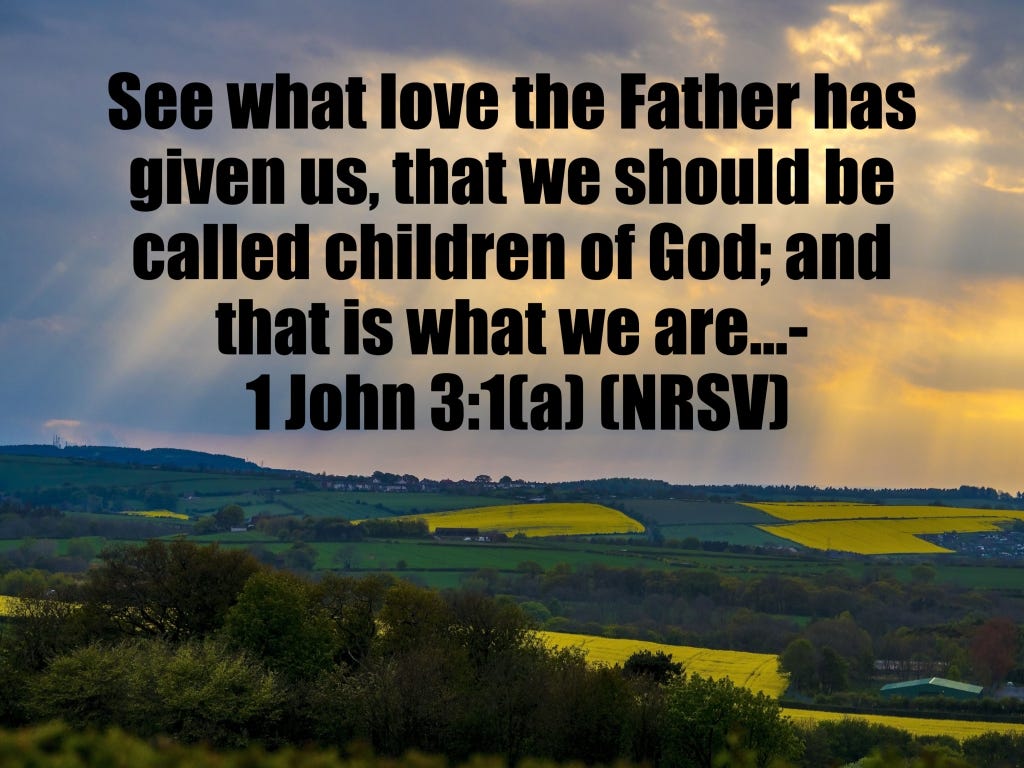Day 6: Mental Illness and Distorted Thinking
#RethinkChurch is doing a 22-day journey for self-reflection based on John Wesley’s 22 questions. I will be trying to compose short blog posts addressing each question. I am using these posts to encourage Christians, especially Progressive and Mainline Christians to reflect deeply on what it means to be Church in a world marred by oppression and violence.
Day 6: Am I self-conscious, self-pitying, or self-justifying?
See what love the Father has given us, that we should be called children of God; and that is what we are…- 1 John 3:1(a) (NRSV)
Having a mental illness/disorder comes with a lot of obstacles: from accessing affordable and adequate health care to combatting societal stigma and pushing back against societal exceptions that we struggle in silence. And of course, the illness/disorder itself is often extremely challenging.
One of the issues that my mental illness exacerbates is distorted thinking. At times I am hyper aware of all my flaws and weaknesses and am convinced that everyone hates me and considers me to be a burden. Other times, it seems as if I am spacing out and unaware of my own body and emotions, let alone that of other people.
There are times where I blame everyone else for my struggles without taking responsibility for the ways in which I could have handled specific situations better. Other times, I cannot help but feel as if everything is my fault. If I were only smarter or more talented, or just a more responsible adult than I wouldn’t be struggling as much to have a steady, stable job or to make friends.
I grapple between wanting to blame all of my poor behavior on my mental illness, acknowledging that I bear responsibility for how I treat others, and also recognizing that my illness can make it difficult for me to be as productive as society claims I need to be.
I struggle with wanting to just throw a pity party bemoaning all my troubles and also wanting to just pull myself up by my bootstraps and get better without the aid of doctors, counselors, and other people. I face a daily battle between self-loathing and trying to remind myself that I am a human being worthy of love.
So, am I self-conscious, self-pitying, or self-justifying? Sometimes. Or more accurately, a good portion of the time. And yes, I am working on trying to get better. But I also need to remember that I am loved. Just as I am. I am a child of God and God’s love is not based on whether or not I am 100 percent healthy. God’s love is not based on whether or not I can navigate the many invisible and unwritten rules that institutions create to shut people like me out or on whether or not I am successful by society's standards.
And I want to affirm that you too, are loved so much by God. You have value. Even if the dominant society claims you to be a burden, know that you are not. Even if you struggle to make it to work each day. You are loved. Even if you find it difficult to have stable relationships, you are loved. Even if you are self-conscious, self-pitying, and self-justifying every single day of your life, you are still loved.
Day 1: Illusions of Perfection
Day 2: The Dangers of Embellishment



